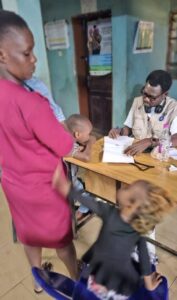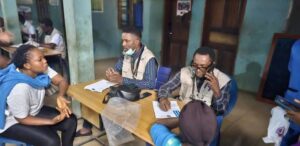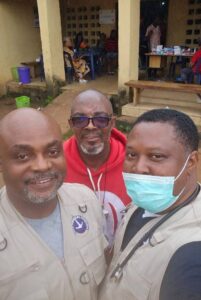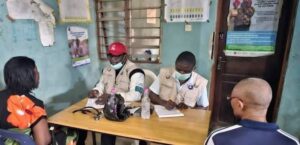Health
Increase budgetary allocation for neurological disorders, society urges FG

The Nigerian Society of Neurological Sciences has urged the Federal Government to show finanicial commitment towards reducing neurological illnesses in the country.
According to a communique issued on Monday, the call was made during the 56th Annual Scientific Conference of the Nigerian Society of Neurological Sciences in Abuja.
Speaking at the conference, a neurologist, Mustapha Danesi, said the provision of healthcare in Nigeria was negatively impacted by inadequate finance and insufficient recognition of neuroscience by the government.
He noted that the stigma around neuro-disabilities prevented afflicted people from receiving appropriate medical care, particularly for mental health and epilepsy.
He said, “The poor funding of healthcare has negative impacts on healthcare delivery in Nigeria. The recognition and patronage of neurosciences by Nigerian government officials are inadequate.
“Stigma in neuro-disability is a public health issue that limits the access of affected individuals to quality health care, especially in mental health and epilepsy.
“There is a need for improved funding for health in line with the 2001 Abuja Declaration of Africa’s Heads of Government, which committed the governments to allocating 15 per cent of their budgets to health.
“The government should increase the budgetary allocation for curbing neurological disorders as well as the recognition of neuroscience. There is a need to appropriately implement the Mental Health Law of 2022 and the Mental Disorders Act.
“Syndicated multi-sectoral collaborations, advocacy, and awareness about stigma in neuro-disability should be promoted in Nigeria. There is a need for more work and networking in headache research.”
Health
NAS Medical Mission Brings Free Healthcare to Orogwe Community

The National Association of Seadogs (NAS) Medical Mission recently conducted a free medical outreach at Orogwe Primary Health Care Centre in Owerri-West, Imo State.
Approximately 300 residents from the community and surrounding areas benefited from the initiative, which included.
Patients received medical attention from qualified healthcare professionals.
Beneficiaries underwent various laboratory tests to detect potential health issues.
Eye care services were provided to help identify vision problems.
Patients requiring further treatment or specialized care were referred to appropriate medical facilities.
This event aligns with the NAS Medical Mission’s objective of providing medical intervention and health awareness to indigent Nigerians in targeted rural communities. The mission is funded by the National Association of Seadogs through annual subscriptions and donations from its members worldwide.




The NAS Medical Mission has conducted several medical outreaches across Nigeria, benefiting over 2,700 patients since its inception. Their efforts focus on bridging the healthcare gap in underserved communities, where access to medical services is limited.
Health
BREAKING: Nigerian nurses suspend nationwide strike

The National Association of Nigerian Nurses and Midwives, NANNM, has suspended the nationwide strike it commenced on July 29, 2025.
The Minister of Health, Ali Pate, made this known while addressing newsmen after a closed-door meeting on Friday.
Pate said the decision followed agreements reached with the leadership of the nursing association.
Meanwhile, the leaders of the union declined to speak on the matter after the closed-door meeting on Friday afternoon.
Ekwutosblog recalls that the nurses embarked on the industrial action following what the union described as the government’s failure to respond meaningfully to its 15-day ultimatum issued on July 14, 2025.
The warning strike involving nurses in public health institutions across the country was slated to continue till August 5, 2025.
Health
Nigerian Egusi seeds makes historic journey to space aboard NASA mission

Egusi (melon) seeds, a cornerstone of West African cuisine, are poised for an unprecedented journey to outer space.
This pioneering scientific experiment, spearheaded by Nigerian space scientist and Federal University of Technology, Akure alumnus, Temidayo Oniosun, aims to evaluate the nutritional and functional suitability of Egusi seeds for extended human space exploration.
The historic launch is scheduled for July 31st at 12:09 PM EDT (5:09 PM Nigerian time), aboard NASA’s Crew-11 resupply mission to the International Space Station (ISS) from Cape Canaveral, Florida.
This groundbreaking initiative, according to a statement jointly signed by Space In Africa’s Queen Dare and Temitayo Oniosun, on Wednesday, marks the first time that seeds from Nigeria will be sent to space, a testament to global cooperation in space research, facilitated by collaborations with The Karman Project and Jaguar Space LLC. Temidayo Oniosun, a prominent voice in Africa’s burgeoning space tech community, expressed the profound significance of the moment.
The statement quoted Oniosun as saying, “I am sending Egusi seeds to outer space to assess their suitability for nutritional and functional applications in long-term human space exploration.
“This is the first time in history that seeds from Nigeria will be going to space.”
The Egusi seeds, carefully sourced from Oyo State, will share the payload with other experimental items under the supervision of NASA astronaut and U.S. Navy Lieutenant Commander Jonny Kim.

Egusi (melon) seeds | Credit: SPACE IN AFRICA
Upon their return to Earth, the Egusi seeds will undergo a rigorous battery of experimental analyses in partnership with Dr. Wagner Vendrame, a distinguished Professor at the University of Florida.
This post-spaceflight research will delve into various aspects, including in vitro germination for morphological and physiological changes, spectral imaging for viability, respiration tests to assess metabolic activity, and molecular analysis to identify genetic variations. Oniosun further emphasized,
“This research goes beyond agriculture; it’s about food security, adaptability, and scientific sovereignty in space exploration.
“If Egusi can survive and thrive after exposure to space conditions, it opens new doors for indigenous crops in extra-terrestrial agriculture”, Oniosun said.
This bold step not only highlights Nigerian scientific prowess but also paves the way for a more diverse and resilient approach to food production in the final frontier.
“This research goes beyond agriculture; it’s about food security, adaptability, and scientific sovereignty in space exploration. If egusi can survive and thrive after exposure to space conditions, it opens new doors for indigenous crops in extra-terrestrial agriculture,” Oniosun noted.
Temidayo Oniosun’s work is being widely celebrated as a monumental achievement for Nigerian science, academia, and innovation.
A graduate of FUTA and an advocate for Africa’s representation in global space discussions, Oniosun’s space experiment places Nigeria on the world map in the realm of astro-agriculture.
The Vice Chancellor of FUTA, Professor Adenike Oladiji, is thrilled by the development and the role of one of the institutions alumni.
He said, “As the countdown begins, the world watches not just a rocket launch, but a symbol of African innovation hurtling beyond Earth’s atmosphere, seeded by home-grown potential, nurtured by academic excellence at the Federal University of Technology Akure Nigeria, and now touching the stars.”
Oniosun graduated with a Bachelor of Technology degree in Meteorology from the Federal University of Technology, Akure in 2016 and has a master’s degree in satellite applications from the University of Strathclyde, Glasgow. He earned his Ph.D. at the University of Delaware.
In May 2015, as a student of the Federal University of Technology, Akure, he led the University space club to launch a balloon to space in a contest.
In 2016, he was the recipient of the International Astronautical Federation Emerging Space Leadership Award for his work in the space industry.
He was elected the regional coordinator for Africa for the Space Generation Advisory Council in February 2017 and re-elected for a second term in 2019.
-

 Politics10 months ago
Politics10 months agoMexico’s new president causes concern just weeks before the US elections
-
Business10 months ago
US court acquits Air Peace boss, slams Mayfield $4000 fine
-

 Trending10 months ago
Trending10 months agoNYA demands release of ‘abducted’ Imo chairman, preaches good governance
-
Entertainment9 months ago
Bobrisky falls ill in police custody, rushed to hospital
-
Entertainment10 months ago
Bobrisky transferred from Immigration to FCID, spends night behind bars
-

 Politics9 months ago
Politics9 months agoRussia bans imports of agro-products from Kazakhstan after refusal to join BRICS
-

 Politics9 months ago
Politics9 months agoPutin invites 20 world leaders
-
Education11 months ago
GOVERNOR FUBARA APPOINTS COUNCIL MEMBERS FOR KEN SARO-WIWA POLYTECHNIC BORI




